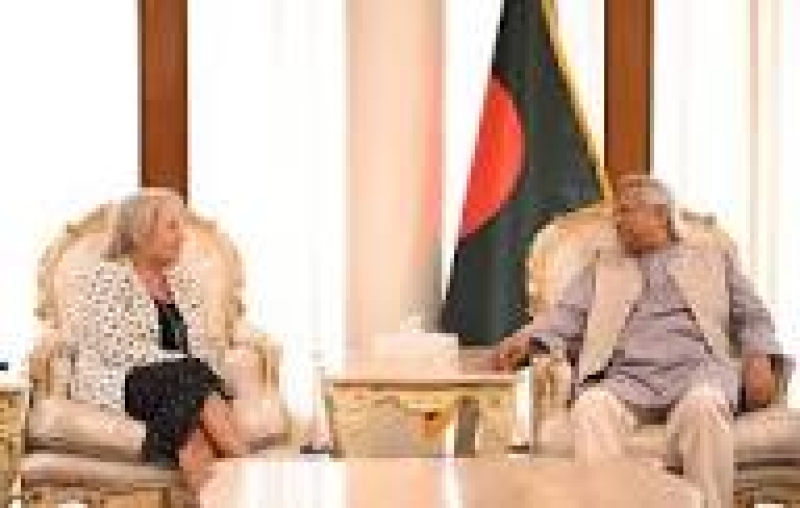- Puppet show enchants Children as Boi Mela comes alive on day 2 |
- DSCC Admin Salam’s drive to make South Dhaka a ‘clean city’ |
- 274 Taliban Dead, 55 Pakistan Troops Killed |
- Now 'open war' with Afghanistan after latest strikes |
- Dhaka's air quality fourth worst in world on Friday morning |
Prof Yunus Urges Stronger UK-BD Ties to Enhance Healthcare

Chief Adviser Professor Muhammad Yunus has called for increased collaboration with the United Kingdom to strengthen Bangladesh’s healthcare system. He made this request during a meeting with Baroness Rosie Winterton, the UK Trade Envoy to Bangladesh, at the State Guest House Jamuna in Dhaka.
The two leaders reaffirmed their commitment to enhancing bilateral ties, with Baroness Winterton acknowledging the "long and trusted history" between the nations. “We have a long history together, and we are pleased to see the direction of reforms being undertaken,” she said.
Prof Yunus emphasized the importance of the moment Bangladesh is going through, describing it as a critical time for institutional rebuilding and reshaping priorities. “We are focused on rebuilding institutions and reshaping priorities,” he stated.
Focusing on the healthcare sector, Prof Yunus highlighted the shortage of skilled professionals, particularly nurses, and called for international support. “Nursing is not just a national concern—it’s a global necessity. We want to train more nurses not only for Bangladesh but for the world,” he said. He urged the UK to assist in strengthening Bangladesh's under-resourced health sector, pointing out that government-run health programs were nearly non-functional.
Additionally, Prof Yunus called for UK support in making pharmaceuticals more accessible globally, advocating for the lifting of patent protections to allow affordable vaccine production under a social business model.
The discussion also covered broader areas of strategic cooperation, including education, textiles, defense, and aviation. “We welcome UK support in improving our education system, modernizing our textile sector, and exploring new areas of collaboration in defense and aviation,” Prof Yunus remarked. Both sides expressed interest in fostering training, technology exchange, and long-term partnerships in these areas.
Emphasizing gender equality, Prof Yunus added, “We always prioritize women's participation in every sector. Empowering women is central to our development strategy.”
Baroness Winterton expressed the UK government’s full support for Bangladesh’s ongoing reform agenda. She also held separate discussions with Ali Riaz, who is leading Bangladesh’s constitutional reform initiative.
Regarding the timing of the next general election, Prof Yunus noted that elections could take place in December if political parties agree on a shorter reform process, but if a more extensive reform is pursued, elections may be delayed until June.
The meeting was attended by Bangladesh Investment Development Authority (BIDA) Executive Chairman Chowdhury Ashik Mahmud Bin Harun and SDG Coordinator Lamiya Morshed.

